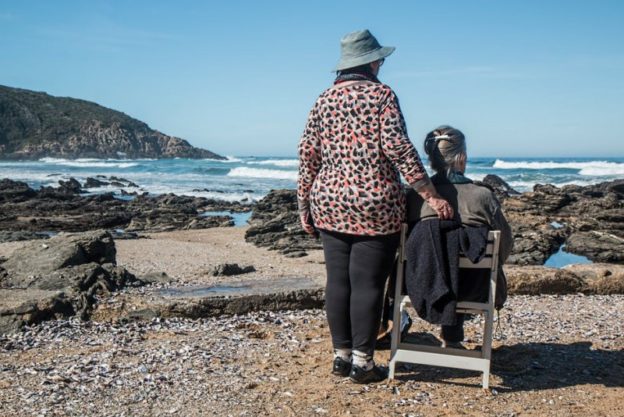(3 Minute Read)
When your loved one has reached a need for round-the-clock care, you face the new responsibility of finding the right in-home care provider. When seeking out this kind of service, you’ll want to do all the research you can. After all, a senior’s twilight years are a time when the right kind of help can make all the difference. But how can you determine which helper is the right one? Here’s five questions to ask in-home care providers as you investigate your options.
What is the background of your company?
Look into the ownership and history of each company you’re considering. Find out what type of license they have–proper certification is king. This also means the certification of staff will be a priority as you research. How long the company has been in business reflects the stability and quality of their service. Still, don’t discount a service provider that’s newer to the industry, especially if their existing patients provide good testimonials.
Will I have continuity in my choice of caregiver?
Building a relationship with their in-home care provider can help alleviate some of the loneliness of aging for seniors who live alone. If the caregiver changes, every week or month, that isn’t possible. Depending on the reason the patient needs in-home care, one dedicated person might be required. In dementia cases, fluctuation in caregiving might put the patient on edge, elevate their stress levels, and ultimately cause more problems than necessary. Confirm out of the gate if the staffing of the caregiver will be continuous or not.
Do you conduct a home visit prior to service?
Always require that the caregiver visit the home where they’ll be working–and meet the person they’ll be caring for–before hiring them. This meeting gives space and time for both parties to express their needs and concerns about the process. It also allows your loved one the opportunity to determine if the caregiver has the right personality for them to feel comfortable. Companies that do not provide home visits prior to care are on the whole, not worth investing time in researching.
Will you work with my elderly loved one’s doctor to develop a plan for care?
In-home care providers that develop a plan for care through collaboration with your senior loved one’s primary care physician are the best bet. If the caregiver doesn’t have a full portrait of the patient’s health, they won’t be able to deliver comprehensive care that improves that health. You’ll also have two outlets for getting information about your relative’s care, which means you can be a better advocate for your loved one.
Can I see references?
Any in-home care provider that refuses to provide references is absolutely not worth your time. Try to see if you can get your hands on references from doctors, social workers, or hospital personnel rather than only patients. Having perspective from medical professionals makes your decision that much more secure.
Paying for in-home care doesn’t have to be a struggle either. Does your senior loved one still maintain a life insurance policy, even though they might no longer need it? Did you know they can sell all or a portion of that useless policy for more than the cash value of surrender? This is called a life settlement, or viatical. Contact Life Settlement Advisors today to learn more about the life settlement process or see if you qualify.
Case Study:
Michelle, a single mother of 3, is trying to keep her ailing mother in her existing home. The medical bills have been piling up and Michelle’s mom does not want to live in a nursing facility.
Michelle discovered she could sell a portion of her mom’s policy for $95,000 and retain $100,000 of death benefit.
Download our resource, How to Plan for Healthcare Costs in Retirement, for more information on common age-related health issues, their costs, and how you can pay for the care you need.





